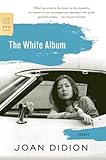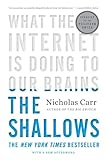There is a tangible shape to my year in reading: it can be plotted on a map. It’s comforting for me to think of it that way, as a path arcing out across the Atlantic, because this was my year of big transitions, and it’s easy to lose sight of where I began, and where I am now. I rang in 2013 at a bar on the Gowanus in Brooklyn, my home for the past five years (the borough, not the canal). I’m writing this from my flat in Hackney, tucked between a big, grimy thoroughfare and a slick new Overground station, on the extension of the old East London Line. New York and London sometimes feel like mirror worlds — some things here are remarkably similar to the city I left behind — but other things are deeply foreign, in a way that rattles me. I grasp for the familiar, but I’m here to look for the new. It helps, then, to root myself in the books I’ve been reading over the past 11 months: they have carried me across the ocean, as I have carried them.
 Fittingly enough, I began the year with Bloody Foreigners: The Story of Immigration to Britain, by Robert Winder. I have no memory of purchasing this book, but it appears to have been printed here in the U.K., so I imagine I picked it up on some Waterstone’s table years ago. (I’ve done stints of various lengths in the British Isles many times in the past decade, all of them characterized by too many impulse-book-buys relative to the sizes of my suitcases.) I’m an aspirational reader when it comes to nonfiction: “Oh, I’m interested in the topic!” I’ll say, super enthusiastically, but in the end I’ll barely manage to slog through the introduction. But Winder is a lively and charming writer, and the book teases out a thread that runs contrary to the popular immigration narrative in Britain: that immigration here, and the racial conflict tied with it, is a modern problem, a post-colonial problem. “Ever since the first Jute, the first Saxon, the first Roman and the first Dane leaped off their boats and planted their feet on British mud, we have been a mongrel nation,” he writes. “Our roots are neither clean nor straight; they are impossibly tangled.”
Fittingly enough, I began the year with Bloody Foreigners: The Story of Immigration to Britain, by Robert Winder. I have no memory of purchasing this book, but it appears to have been printed here in the U.K., so I imagine I picked it up on some Waterstone’s table years ago. (I’ve done stints of various lengths in the British Isles many times in the past decade, all of them characterized by too many impulse-book-buys relative to the sizes of my suitcases.) I’m an aspirational reader when it comes to nonfiction: “Oh, I’m interested in the topic!” I’ll say, super enthusiastically, but in the end I’ll barely manage to slog through the introduction. But Winder is a lively and charming writer, and the book teases out a thread that runs contrary to the popular immigration narrative in Britain: that immigration here, and the racial conflict tied with it, is a modern problem, a post-colonial problem. “Ever since the first Jute, the first Saxon, the first Roman and the first Dane leaped off their boats and planted their feet on British mud, we have been a mongrel nation,” he writes. “Our roots are neither clean nor straight; they are impossibly tangled.”
My spring reading was routine, a stockpile of books for review, some chosen by me, some assigned. So I crisscrossed the globe seemingly at random, cartography determined by publishing schedules and press releases, South Asia to southern New England, Ireland to New York. I like being assigned books, because it takes the pressure off, sometimes: save a few writers that I love and a few that I hate, most authors are new to me. I try to approach each book as an aggressively neutral third party, no preconceived notions, no agendas, no hopes for the reading experience. Of course, at some level, this is bullshit: I am all of my preconceived notions and agendas and hopes for reading packed into a single individual, and it’s impossible to separate that out. But I like the illusion of it, however temporary: the idea that I am a blank slate, open to whatever book drops through my letter box, is a sort of armor against time’s narrowing effects on my mind.


 And then, it was goodbye to all that. Before the release of the collection that seemed to get all sorts of people riled up (Goodbye to All That: Writers on Loving and Leaving New York), I wrote my own ode to Joan Didion’s leaving-New York essay, as I prepared to leave New York. So I re-read Slouching Towards Bethlehem, because, well, Joan Didion. Shortly before I packed up the last of my boxes, I flew across the country to visit my little sister in Los Angeles, and I cracked open The White Album for another Didion re-read while sitting on the beach in Santa Monica. I confirmed what I’d suspected all along — I’m very bad at reading on beaches — and the book was abandoned in the sand as my shoulders burned.
And then, it was goodbye to all that. Before the release of the collection that seemed to get all sorts of people riled up (Goodbye to All That: Writers on Loving and Leaving New York), I wrote my own ode to Joan Didion’s leaving-New York essay, as I prepared to leave New York. So I re-read Slouching Towards Bethlehem, because, well, Joan Didion. Shortly before I packed up the last of my boxes, I flew across the country to visit my little sister in Los Angeles, and I cracked open The White Album for another Didion re-read while sitting on the beach in Santa Monica. I confirmed what I’d suspected all along — I’m very bad at reading on beaches — and the book was abandoned in the sand as my shoulders burned.
The end of summer was crisp and prematurely autumnal in upstate New York, and as the racing season came to a close, I started to think about which books were making the journey overseas. I made little piles; I swapped out heavier volumes for lighter ones; I tried to think about what I wanted at my side, and the old aspirational book-gathering again — what sort of person would I be, with these books on my shelf across the ocean? I wound up in the parking lot at JFK on the hottest day in the history of man, sweating profusely as I frantically pulled out paperbacks and handed them to my mother. They would arrive, along with boots and coats and a blanket, in a battered package a month later. By then, I’d already purchased a dozen new books, falling hard on old habits, Waugh and Forster and Conan Doyle, overlarge collections of literary criticism by Edward Said and David Lodge, and a paperback of a book I already own back in the U.S., just because it was £2 and it was there sitting on a table at the store. I trekked up to the IKEA in Tottenham and bought a BILLY bookcase; I proceeded to assemble it incorrectly. It’s nearly full already, and it’s only November. At the Columbia Road Flower Market a few Sundays back I bought my first plant, to sit on top. “It’s my first plant!” I announced to a deeply unimpressed Cockney flower-seller. “Yeah, so that’s a fiver,” he repeated, holding out his hand.

 I’ve ended the year with books for class — I’m here at University College London to study the digital humanities, so that’s a broad and varied body of literature, the history of mark-up and theories on user-centered design and Nicholas Carr’s The Shallows: What the Internet Is Doing to Our Brains. All of that will be the story of next year’s reading. For now, I’m trying to navigate my transatlanticism as well as I can. On Thanksgiving, after the American service at St Paul’s Cathedral, I walked down Fleet Street and over to Charing Cross Road, where I popped into Foyle’s and picked up Terry Eagleton’s Across the Pond: An Englishman’s View of America. On my way out the door I was stopped by a survey-taker — this country seems gripped by a frenzy of surveys right now — to whom I revealed, laughing self-consciously, that I’d come into the store and purchased the book on a whim. Her eyebrows went up when I said it, and she smiled slightly as she ticked the boxes. I didn’t tell her I had a new bookshelf to fill up.
I’ve ended the year with books for class — I’m here at University College London to study the digital humanities, so that’s a broad and varied body of literature, the history of mark-up and theories on user-centered design and Nicholas Carr’s The Shallows: What the Internet Is Doing to Our Brains. All of that will be the story of next year’s reading. For now, I’m trying to navigate my transatlanticism as well as I can. On Thanksgiving, after the American service at St Paul’s Cathedral, I walked down Fleet Street and over to Charing Cross Road, where I popped into Foyle’s and picked up Terry Eagleton’s Across the Pond: An Englishman’s View of America. On my way out the door I was stopped by a survey-taker — this country seems gripped by a frenzy of surveys right now — to whom I revealed, laughing self-consciously, that I’d come into the store and purchased the book on a whim. Her eyebrows went up when I said it, and she smiled slightly as she ticked the boxes. I didn’t tell her I had a new bookshelf to fill up.
More from A Year in Reading 2013
Don’t miss: A Year in Reading 2012, 2011, 2010, 2009, 2008, 2007, 2006, 2005
The good stuff: The Millions’ Notable articles
The motherlode: The Millions’ Books and Reviews
Like what you see? Learn about 5 insanely easy ways to Support The Millions, and follow The Millions on Twitter, Facebook, Tumblr.









